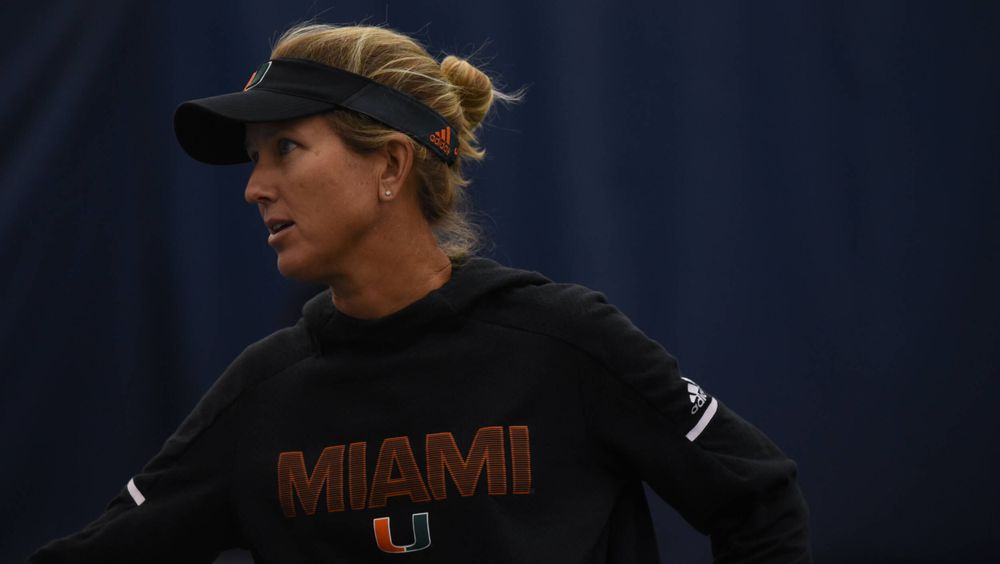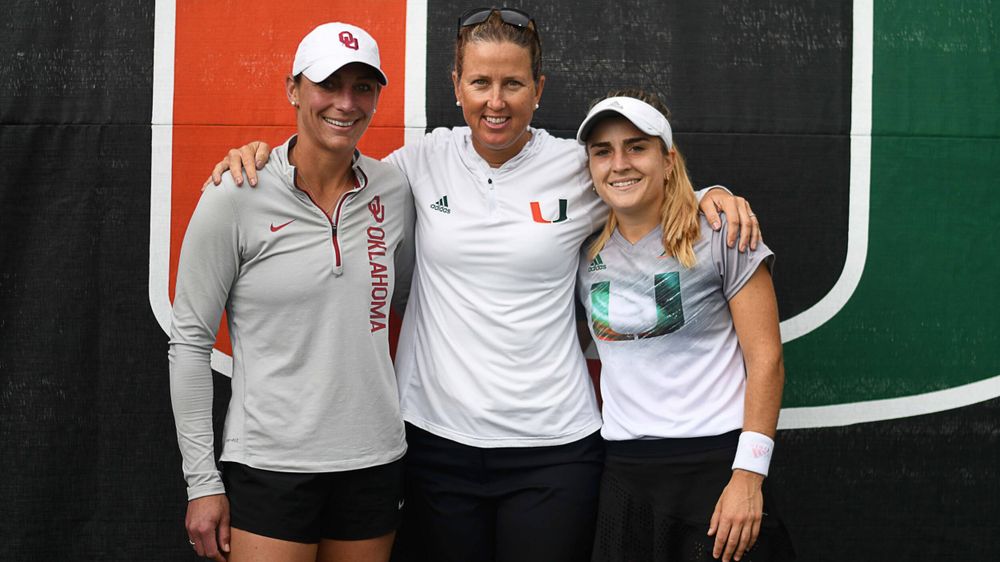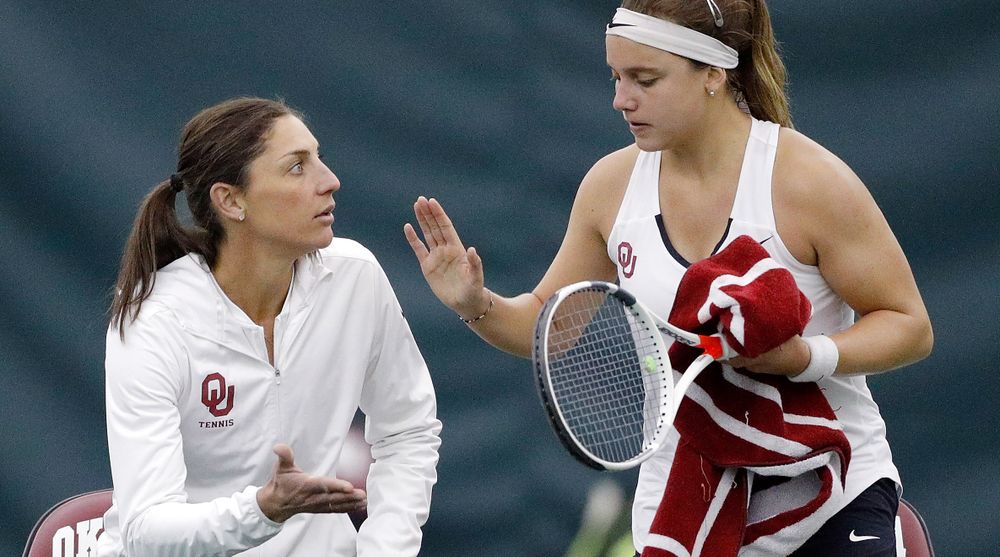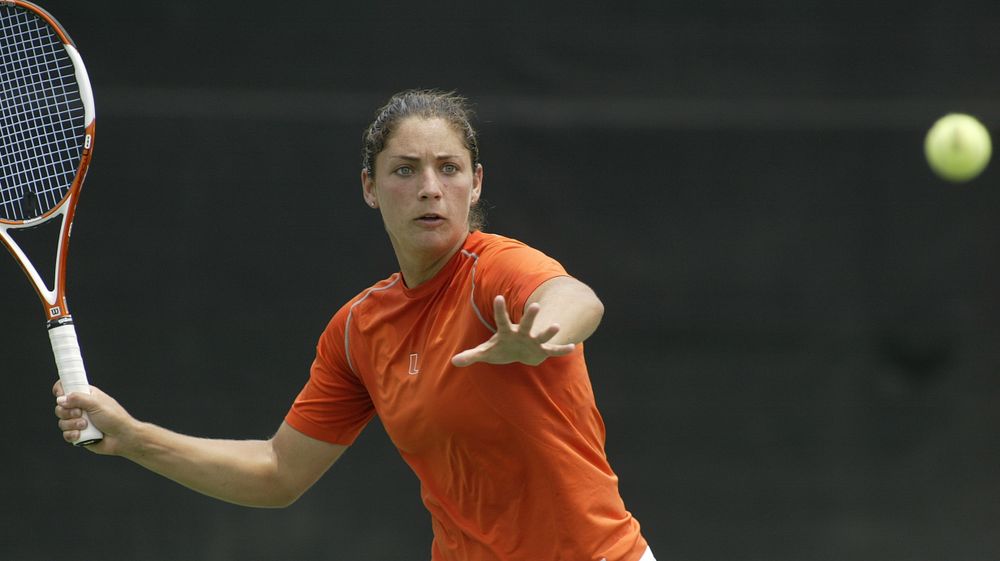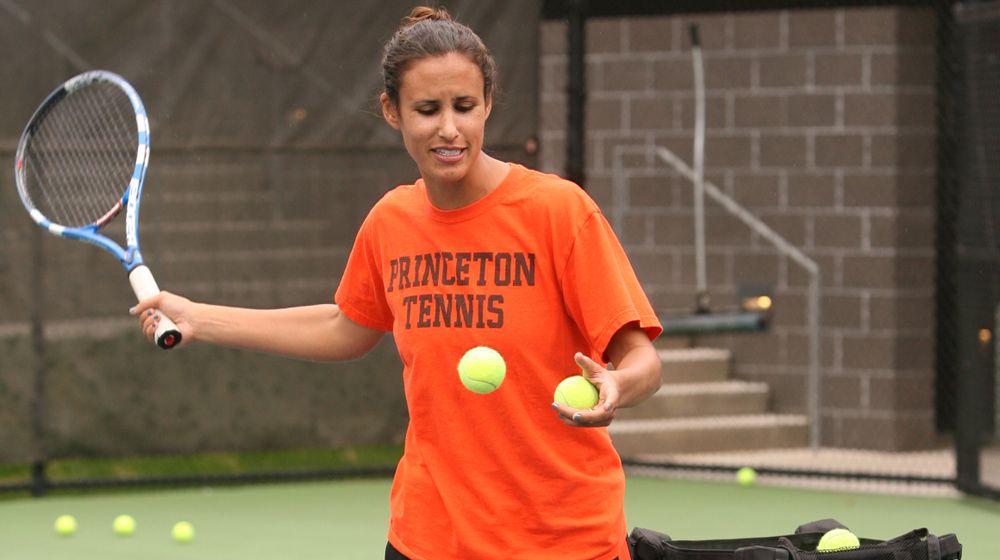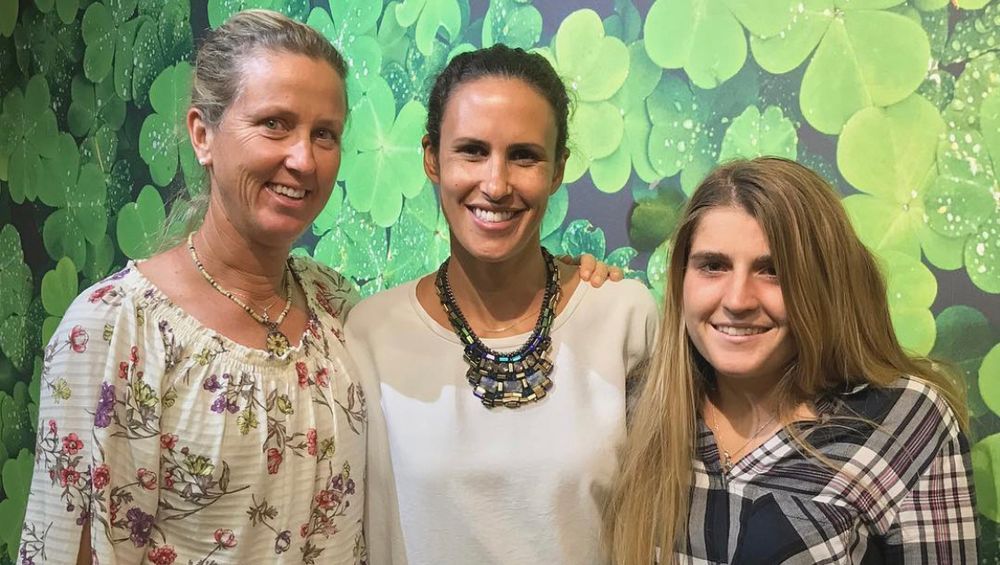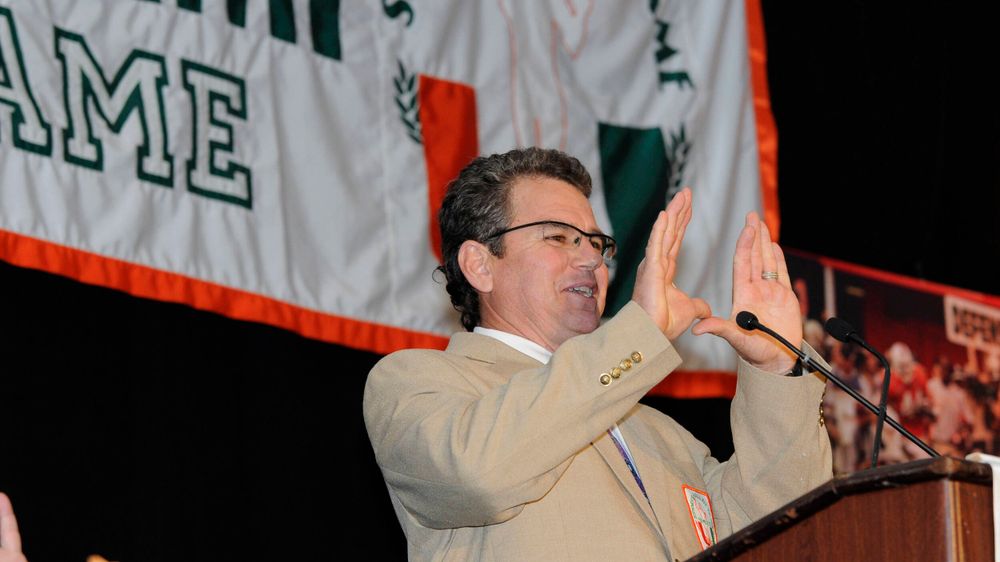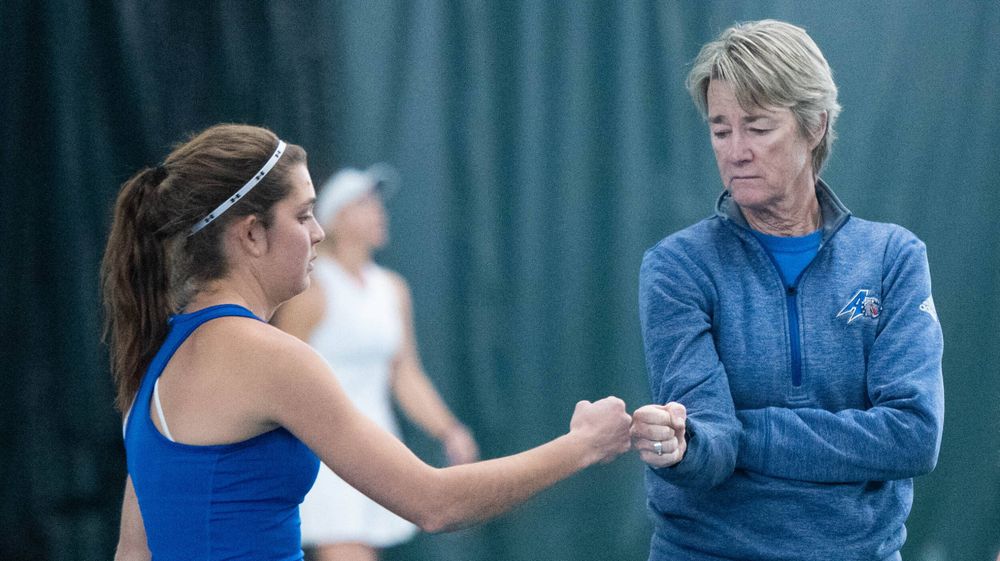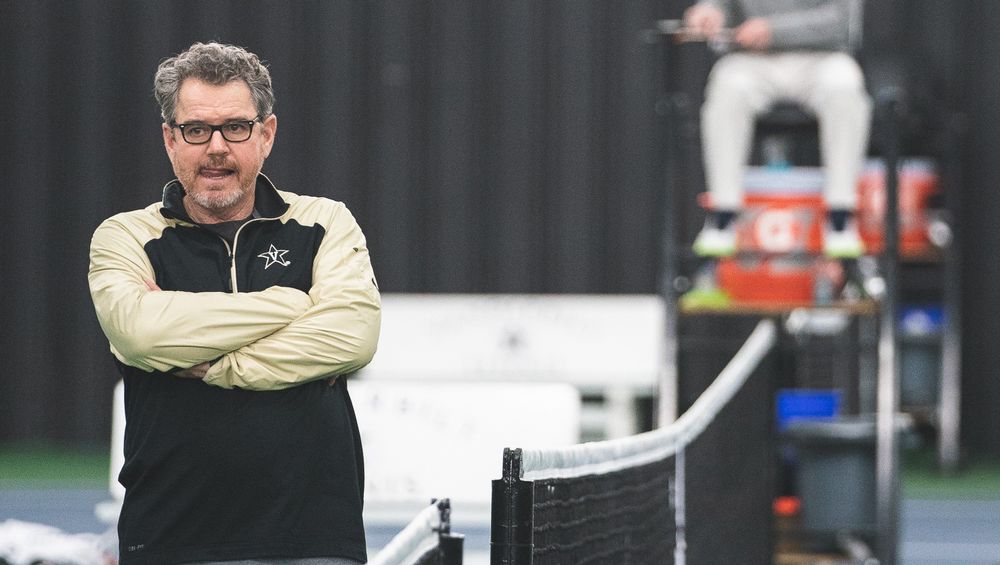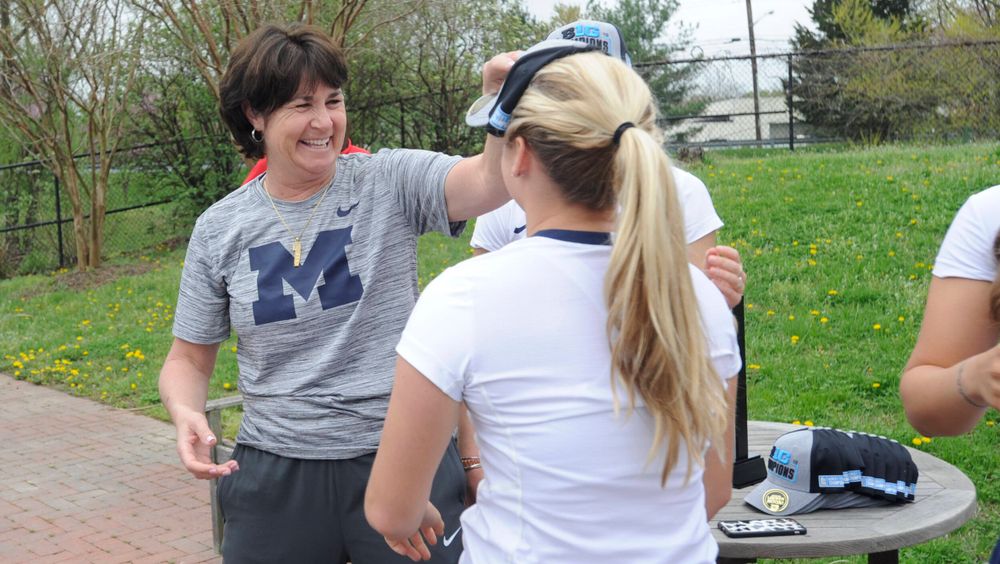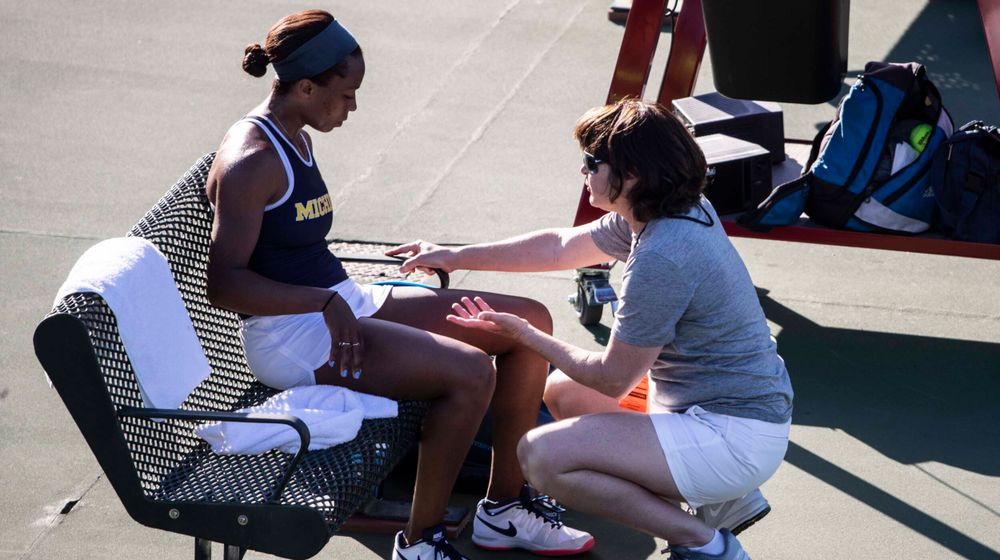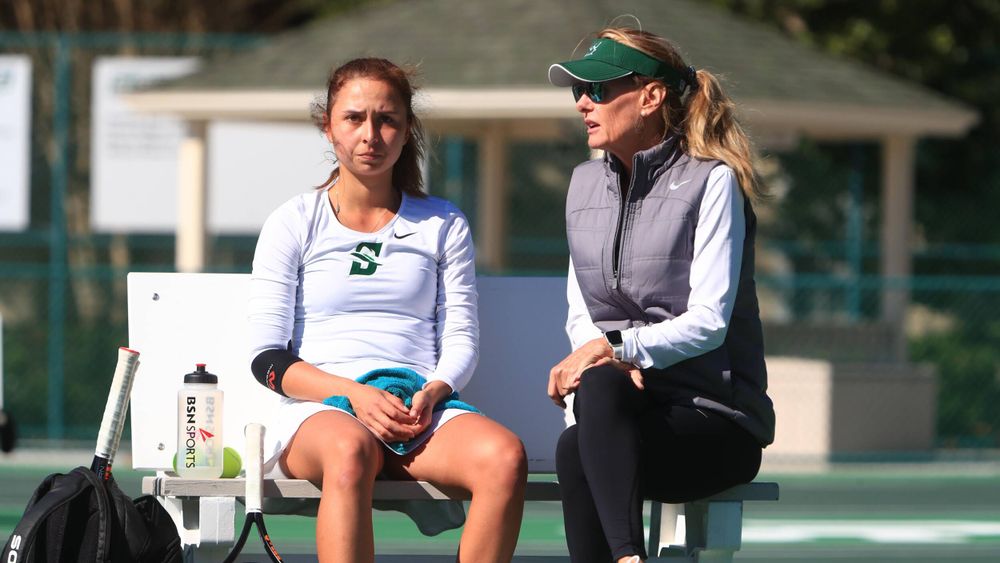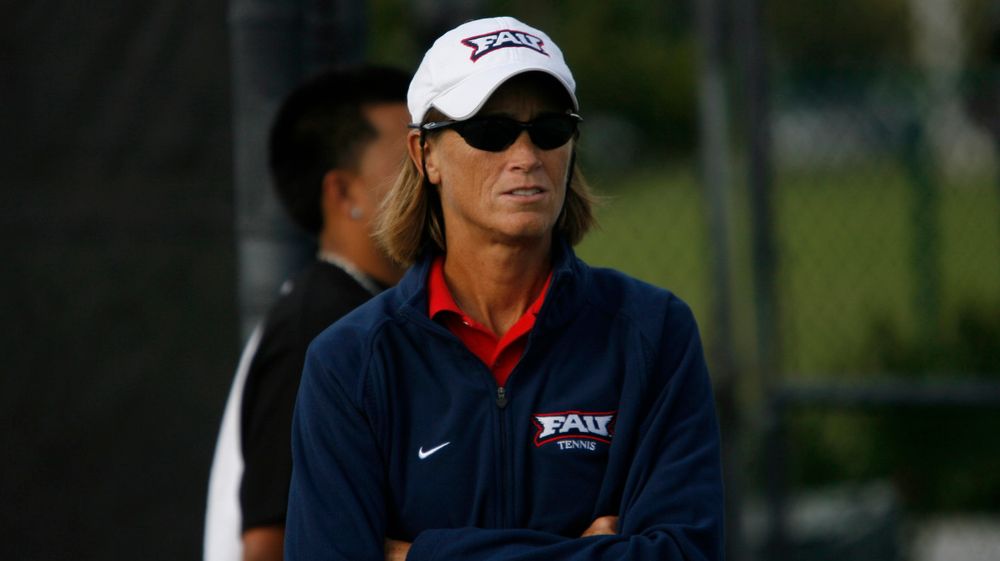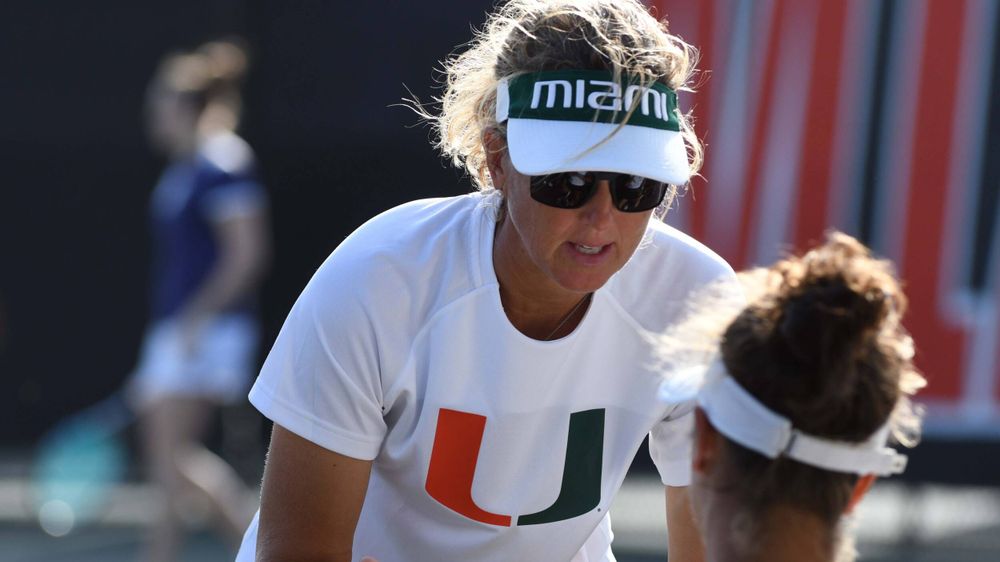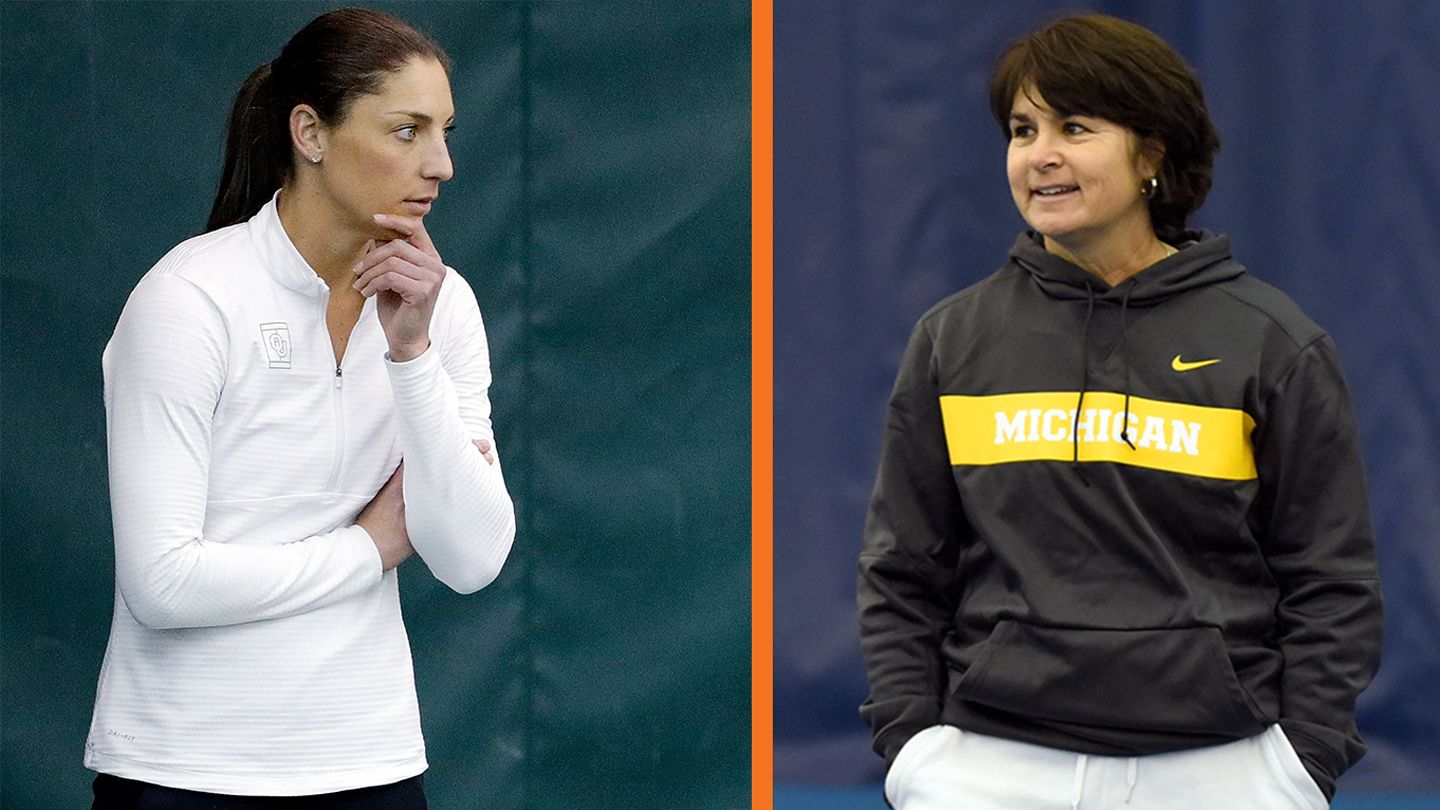
Coaching Canes
CORAL GABLES, Fla. – The University of Miami women’s tennis program has a history of producing wins and superstars like few others in the country.
It also has a similar tradition of producing eventual college coaches.
Of the team’s seven NCAA-era players in the UM Sports Hall of Fame (UMSHoF), six have served as Division I college coaches, with five ascending to a head coaching role.
In total, at least nine former Hurricane standouts have led a DI program, while numerous others have worked as college assistants or volunteers.
The group ranges from players who started their careers at Miami in 1975 all the way to 2016.
Many of those individuals played for Paige Yaroshuk-Tews, the leader of Miami’s program since 2002 and an assistant coach for four years before that.
Included in that batch are eventual head coaches Audra Cohen and Megan Bradley, both members of the UMSHoF, and Marcy Hora.
“I think that all of those girls were incredible leaders. Typically a lot of our players have been very independent,” Yaroshuk-Tews said. “I think tennis players, in general, are typically independent student-athletes, but those girls were just leaders. Just knew how to take a team, even as a student-athlete, and be that go-to person. I’m sure that they’ve just taken that into their coaching styles and their coaching habits.”
Cohen won the first of two NCAA singles titles in Miami history in 2007 and she garnered ITA National Player of the Year honors both of her seasons donning the orange and green.
She opened her coaching career as an assistant at Wisconsin in the fall of 2009 and spent two years with the Badgers. Cohen then went to North Florida, where she won four Atlantic Sun conference titles and three ASUN Coach of the Year accolades.
Cohen moved on to Oklahoma in the summer of 2016 and has posted a 54-32 record there, leading the Sooners to an NCAA berth in 2019.
The Plantation, Fla., native initially had no plans to pursue college coaching, but the economy crashed soon after she started her pro career and she looked for an alternative. She “stumbled upon” coaching because she loved her experience as a player so much and is “incredibly thankful” she did so.
Cohen is one of only three former NCAA singles champions to serve as a college head coach, just two of whom are still active.
The experience of knowing what it takes to claim the ultimate individual prize is something Cohen uses in her work now, even if it translates to different players in different ways.
“You don’t have to be the best, but you have to be the toughest and the most resilient and willing to work hard,” Cohen said. “I think when you combine those things where you’re so tough and you’re able to deal with failure and have that resilience piece and, on top of that, you’re an incredibly hard worker and driven to do things, then that’s a special kind of person.
“I think when I was playing I didn’t realize that I was that person and I think it’s very rare now, as a coach, to coach that kind of player,” Cohen continued. “But your job becomes coaching players to get closer to that kind of player or to develop their skills so that they get closer to that kind of trifecta of excellence.”
Along with her individual success, Cohen also helped lead the Hurricanes to the NCAA title match in 2006, her first year with the program.
Yaroshuk-Tews saw all the way back then some of the attributes her star pupil utilizes to this day in the second portion of her life in tennis.
“She had this burning fire inside of her that nothing was going to get in the way. You could see it just as a person,” Yaroshuk-Tews said. “Whether she was talking to you about something she believes or as a player, she had a burning fire in her. And I think she was the kid on the team who would have no problem telling somebody else, just straight up, what she thought. You don’t find a lot of women that are willing to do that. Megan was the same way.”
Cohen, meanwhile, credits Yaroshuk-Tews and her time at Miami for helping her develop a mindset that aided on the court.
She now looks to pass down that same mentality to the players under her tutelage, as Yaroshuk-Tews did for her years ago.
“I think the biggest thing is resilience, just finding that extra in a moment where you feel like you’re totally depleted or defeated and always knowing that you have that extra,” Cohen shared about how her time at The U helped her. “I think Paige’s program really instilled that in myself and then having recovered from a major surgery when I arrived at Miami taught me that, as well. That’s definitely the first thing that comes to mind when I reflect on my experience is just that learned resilience and how much confidence that gives for your coaching career, your life. It’s taught me, also, how important it is to teach that to others.”
Bradley—now Megan Rose—began her coaching career as a volunteer for Yaroshuk-Tews at Miami. She then served as the head coach at Princeton for three seasons, 2010-12, leading the Tigers to one Ivy League title and combined 17-4 record in conference play. She now works for the USTA and has previously spent time at the WTA.
The 2005 ITA National Player of the Year, Bradley also got into college coaching because of the economic downturn.
Also like Cohen, she took lessons she learned from her former coach with her when she successfully ran her own program. One of them was the importance of fitness and another was identifying leaders on her roster.
The last one was about ensuring she cared for her student-athletes as people and, beyond that, understanding each player might have a different ideal way to be coached.
“Paige taught me and coached me exactly how I needed to be coached, but that’s not for the faint of heart. I mean that in the best possible way,” Bradley explained. “I needed someone to really be tough and that’s not always the case with young, college-aged women that are 18 to 22. And so, [I learned] how to work with each of those players individually, just making sure that you were also looking to take care of them as people and as individuals kind of going through a major change in their life. College is just an absolutely transformative time in anybody’s life.”
Ian Duvenhage is another former Miami women’s tennis coach who helped guide some of his players to stellar on-court careers and eventual positions in the college coaching world.
A Hurricane letter winner himself on the men’s side, Duvenhage played for another Miami alumnus, John Hammill. Both of them are among the 34 coaches in the UMSHoF, as is Yaroshuk-Tews.
From Hammill, Duvenhage took lessons that greatly benefitted him when he moved into the coaching ranks.
“He taught us a lot about life and that certainly, to this day, is a motivation to make coaching tennis be about more than just tennis. I think that happens in college, where suddenly you’ve got seven, eight teammates around you who are supporting you,” Duvenhage explained. “In junior tennis, you’re all by yourself and mom and dad are your support group, or your coach. On tour, you’re by yourself. So, college tennis is a unique vehicle for tennis to be practiced. You learn that it isn’t about you, it’s about the team. Those values are important when you become a college tennis coach.”
Using those values, Duvenhage built a powerhouse in Coral Gables. He led the Hurricanes for seven seasons, 1982-88, helping the program to four Elite Eights, two Final Fours and one national title match.
Lise Gregory, Ronni Reis and Ros Riach were all a part of the runner-up team in 1985 and the third-place finishing squad the following year. All three are in the UMSHoF and each one has since gone on to serve as a high-level Division I head coach.
“I can’t say that I sensed that [they would go into coaching] or that they ever made a comment that, ‘Hey, I want to be a college tennis coach,’” Duvenhage said. “But I certainly sensed from a human interaction perspective that the necessary qualities and abilities were there to be a very successful coach and nothing that they’ve done has really surprised me.”
Gregory, who owns three conference coach of the year accolades across two leagues, is currently the head coach at UNC Asheville. She led the Florida State program from 1996-2004, logging seven NCAA appearances in eight years, and has been at UNCA since 2007, directing both the men’s and women’s teams the first half of her tenure.
Reis—now Ronni Bernstein—is entering her 14th year as the head coach at Michigan, where she is 122-6 in Big Ten play with eight Sweet 16 trips and eight Big Ten crowns. A 10-time league coach of the year across two conferences, she spent 10 seasons as the head coach at FIU, earning NCAA berths in five of her final seven campaigns.
Riach—now Ros Riach-Dalrymple—is one of two former Miami players to serve as the Hurricanes’ head coach. She did so in the 1989 and 1990 seasons and was followed by Kim Sands—the first female African-American scholarship student-athlete at The U and a four-time BIG EAST Coach of the Year—who guided the team through 1998. Riach, who steered Miami to a top-10 finish her first season at the helm, currently serves as an assistant at Stetson.
Duvenhage, now in his 16th year as the head men’s coach at Vanderbilt after 13 in charge of Florida’s men’s program, thinks the team success that trio was part of in the mid-1980s at Miami was beneficial to them as coaches now.
“I do think so and I base that primarily on the fact that they’ve made comments to me. Ronni, in particular, I think feels strongly that her experience at Miami was such a great experience for her in her life,” Duvenhage shared. “We had this group of women who looked after each other and cared about each other and challenged each other to be better. It was a very special environment. I still cherish that as one of the great times in my life in coaching after 40 years.”
The lone eight-time ITA All-American in program history, Reis made four NCAA Doubles Championship semifinal berths, reaching the title match twice and claiming the 1986 crown. Three of those Final Four appearances, including the one resulting in a national title, came alongside Gregory, herself a seven-time ITA All-American.
"College tennis is a unique vehicle for tennis to be practiced. You learn that it isn’t about you, it’s about the team. Those values are important when you become a college tennis coach." -Ian Duvenhage
Reis got her start in college coaching as an assistant at Arizona State, before going to graduate school at FIU, where she went on to spend two years as an assistant before earning the head coaching job in 1997.
That all came after a professional career on the WTA Tour that included a top-80 singles ranking and a top-35 doubles ranking.
“I’m coaching because of my time at Miami. There’s no question if I think of my [career]—I played junior tennis, I played college tennis, I played pro tennis—my fondest memories of my tennis was when I was at Miami. That’s just easy, playing for a team,” Reis said. “Ian, he’s why I got into coaching, my experience with him and the relationship. I think with coaching, you have your ups and downs with kids. I had my ups and downs with him, but there’s always that respect that you work together for a common goal. My time at Miami is why I’m doing it and I’ll always remember that. It’s where I enjoyed [playing] the most.”
One particular attribute from Reis’ playing career that Duvenhage feels has aided her as a coach is how she learned to manage her emotions during competition.
Despite her incredible accomplishments, the Miami native was a player whom Duvenhage said had to learn how to “be her own best friend on the court,” rather than beating herself up.
Given her accolades, Reis clearly learned how to do that and has been able to share that knowledge with her pupils now. In 2017, she coached a national champion of her own, Brienne Minor, and saw similarities to her own success.
“I think the biggest thing is we all doubt ourselves and I doubted myself a lot when I played,” Reis said. “On paper, it looks like I did great things, but there’s always that doubt in coming through and succeeding in those moments. I think that’s what was cool about watching Bri do it because it’s sort of overcoming your self-doubt and how you respond to that.”
When Reis first got her start at FIU and was, at times, in need of advice, she would occasionally consult Duvenhage or Gregory.
For Duvenhage, it has been quite rewarding seeing his former players pursue careers in the industry he has spent nearly his entire adult life.
“It’s incredibly gratifying to me. I’m very proud of Ronni and Lise and Ros,” Duvenhage said. “…I’ve often thought that at some point I would love to actually be an assistant coach for one of these people that I respect so much and that I care about so much and to have the roles be reversed so that I could learn from them.”
While Duvenhage looks forward to a chance for his former players to edify him with their current craft, Yaroshuk-Tews has felt herself grow from hers in a different capacity.
When she sees people such as Cohen, they will not only reminisce on the time they spent together in Coral Gables, but also on the ways they benefitted one another.
“We’ll talk and we’ll share funny stories or we’ll see each other in hotel lobbies and sit down and have a drink sometimes. And they’ll say, ‘Oh my God. Can you remember back when? And can you remember I did this?’” Yaroshuk-Tews shared. “And I’ll say, ‘Can you remember you did that?’ I think that they understand that I have learned from each one of them and I think that they have, probably along the way, learned from being a part of our program.”
Whether it was Sands in the 1970s, players such as Mary Dailey—a former head coach at Florida Atlantic and UIC—and Reis in the 1980s, Marcy and Caroline Hora in the 1990s or Bradley and others in the 2000s, one common aspect in the college careers of the future coaches from The U was spending time in a diverse, multicultural city.
Cohen feels spending two of her college years in Coral Gables aids her in her current craft, as tennis is one of the college sports most heavily featuring foreign student-athletes.
“I think it’s one of the biggest benefits that I’ve had as a coach of an international sport because when it comes to international recruiting, when it comes to being around international players, I feel so comfortable,” Cohen shared. “…To be able to experience the world in such a setting and be able to have that with me now in a position where I’m in Middle America, basically, [is great]. For me, here, to have that under my belt makes it so much better because I have this experience [of being around people] from so many different areas and working with so many different types of people.”
Yaroshuk-Tews did not attend The U, but—like Bradley, Cohen, Reis and the Hora sisters, both of whom coach(ed) at Florida Atlantic—grew up in South Florida.
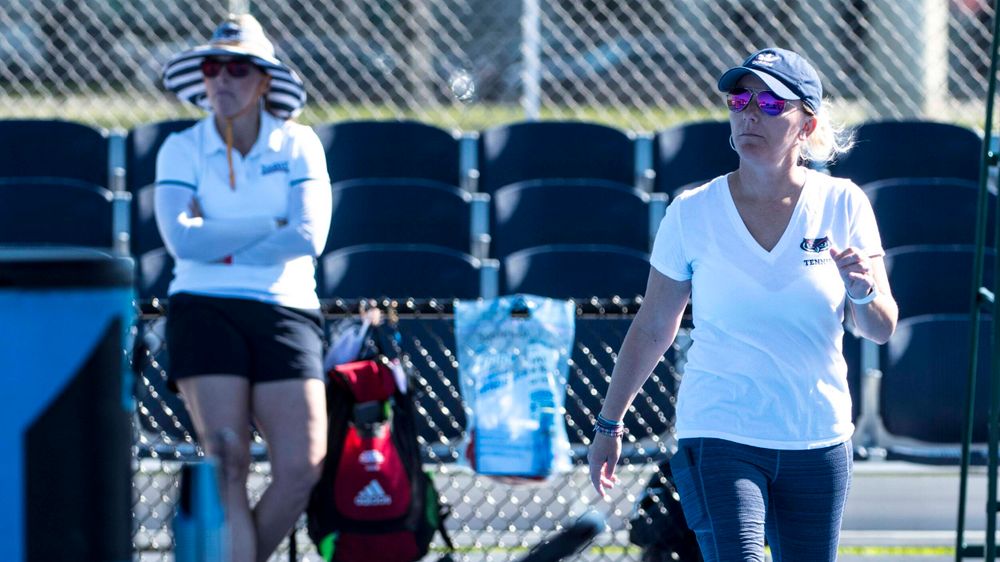
For 15 of the last 20 years, Caroline (left) or Marcy (right) Hora has served as Florida Atlantic's head coach
While doing so, the Miami Killian High School graduate spent time watching some Hurricane greats she would later befriend. That has, in turn, helped her understand the significance of Miami women’s tennis, which she has both built upon and taught to her players.
“I still see Ian when we go to Vandy. I still, obviously, talk to Ronni and see her. Lise, I still run into her occasionally. Lise and Ronni, specifically, are people I would go watch play,” Yaroshuk-Tews said. “They had something to do with me finding a true enjoyment and a love for tennis. I would go watch them play and I was like, ‘Wow.’ So, for me specifically, [when I got this job], it was more about a sense of responsibility to the program and to the people who had come before me, done a great job and poured their hearts into it.”
One of those people is, of course, Duvenhage.
He, much like Bradley and Cohen, had no initial plans of getting into coaching. Rather, after concluding his pro career, he was in graduate school at Miami when then-Hurricane head coach Ann Goldman resigned late in 1981.
School officials asked him if he would take over for the year and that eventually turned into much more, as he found himself surprisingly enjoying it a great deal.
“In retrospect, 40 years later I just am so full of gratitude that, that little happy accident occurred because it’s made my life so much better,” Duvenhage shared. “Really, having [the chance to coach] Ronni and Ros and Lise and all the other women was a wonderful experience and the relationships that I have with them since life has made my life better. It’s enriched my life and so I feel extremely fortunate to have had them as a part of my life.”
The Hurricanes clearly also benefitted a great deal from that occurrence.
Over the course of three decades, so too have the Sun Devils, Panthers, Wolverines, Hatters, Seminoles and Bulldogs.


